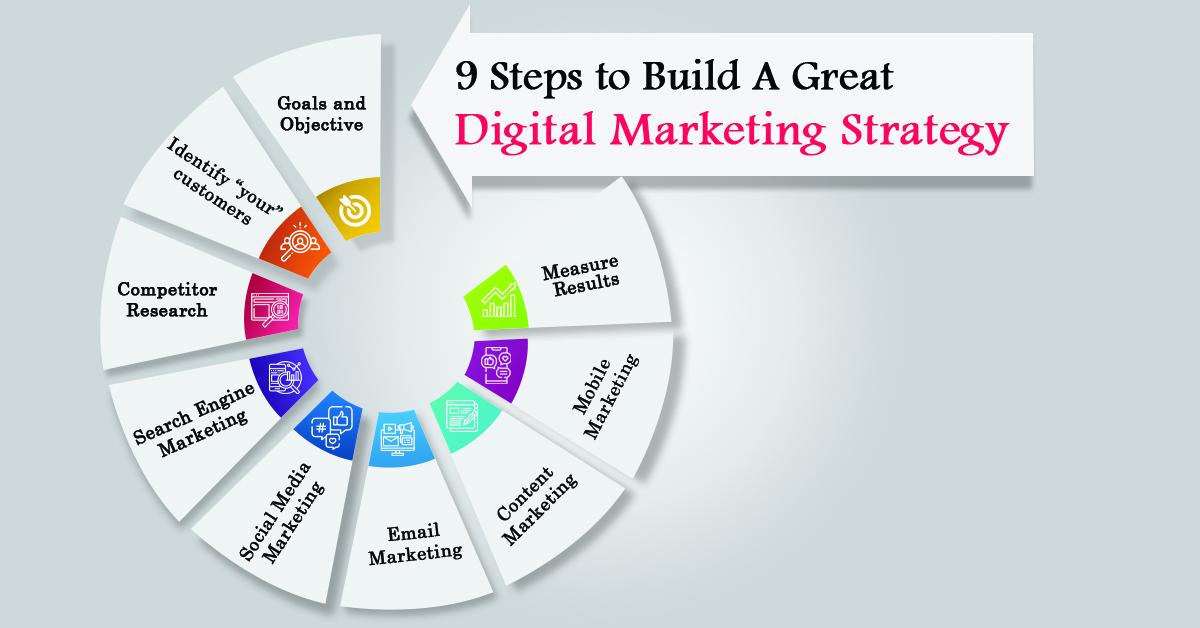Why Digital Marketing is Crucial for Startup Success
Digital marketing has become an essential component of any startup’s overall marketing strategy. In today’s digital age, having a strong online presence is crucial for reaching and engaging with target audiences. Digital marketing for startups offers numerous benefits, including increased online visibility, targeted audience reach, and cost-effective advertising. By leveraging digital marketing channels, startups can effectively compete with larger, more established companies and gain a competitive edge in the market.
A well-planned digital marketing strategy enables startups to build brand awareness, drive website traffic, and generate leads. It also provides valuable insights into customer behavior and preferences, allowing startups to refine their marketing efforts and improve overall performance. Moreover, digital marketing allows startups to measure the success of their marketing campaigns in real-time, making it easier to adjust strategies and optimize results.
For startups, digital marketing offers a level playing field, where small businesses can compete with larger corporations. By focusing on digital marketing, startups can reach a wider audience, build a strong brand, and drive business growth. Whether it’s through social media marketing, content marketing, or search engine optimization (SEO), digital marketing provides startups with the tools they need to succeed in today’s competitive market.
In fact, a study by HubSpot found that 53% of startups that use digital marketing see an increase in website traffic, while 45% see an increase in lead generation. Furthermore, digital marketing allows startups to target specific audiences and tailor their marketing efforts to resonate with their ideal customer. By understanding their target audience and creating content that speaks to their needs and interests, startups can build strong relationships with their customers and drive long-term growth.
Understanding Your Target Audience: The Key to Effective Digital Marketing
To develop a successful digital marketing strategy, it’s essential to understand your target audience. Knowing your audience’s needs, preferences, and behaviors is crucial for creating effective marketing campaigns that resonate with them. Digital marketing for startups relies heavily on understanding the target audience, as it allows startups to tailor their marketing efforts to specific demographics, interests, and behaviors.
Conducting market research is a critical step in understanding your target audience. This involves gathering data on your audience’s demographics, interests, and behaviors. You can use online tools such as Google Trends, social media insights, and customer surveys to gather this data. Additionally, creating buyer personas can help you visualize your ideal customer and tailor your marketing efforts to their specific needs and preferences.
A buyer persona is a semi-fictional representation of your ideal customer. It includes demographic information, such as age, location, and job title, as well as behavioral information, such as interests, hobbies, and pain points. By creating buyer personas, you can develop targeted marketing campaigns that speak directly to your audience’s needs and interests.
For example, if you’re a startup that offers a fitness app, your buyer persona might be a 25-35-year-old urban professional who is interested in health and wellness. You can use this information to create targeted marketing campaigns on social media, such as Facebook and Instagram, that speak directly to this demographic.
Understanding your target audience is also essential for measuring the success of your digital marketing efforts. By tracking your audience’s engagement with your marketing campaigns, you can refine your strategy and make data-driven decisions. This involves using tools such as Google Analytics and social media insights to monitor your performance and adjust your strategy accordingly.
How to Develop a Winning Digital Marketing Strategy for Your Startup
Developing a comprehensive digital marketing strategy is crucial for startups to succeed in today’s competitive market. A well-planned strategy helps startups to reach their target audience, build brand awareness, and drive business growth. Digital marketing for startups requires a strategic approach that aligns with the company’s overall goals and objectives.
The first step in developing a winning digital marketing strategy is to set clear marketing goals. This involves identifying the startup’s target audience, their needs, and preferences. Startups should also define their unique value proposition and differentiate themselves from competitors. By setting specific, measurable, achievable, relevant, and time-bound (SMART) goals, startups can create a roadmap for their digital marketing efforts.
Choosing the right digital channels is also essential for a successful digital marketing strategy. Startups should consider their target audience’s online behavior and preferences when selecting digital channels. For example, if the target audience is active on social media, startups should focus on social media marketing. Similarly, if the target audience is searching for products or services online, startups should focus on search engine optimization (SEO).
Allocating budget effectively is also critical for a winning digital marketing strategy. Startups should allocate their budget across different digital channels based on their target audience’s online behavior and preferences. For example, if the target audience is active on social media, startups should allocate a larger budget for social media advertising. Similarly, if the target audience is searching for products or services online, startups should allocate a larger budget for SEO.
Additionally, startups should also consider the role of content marketing in their digital marketing strategy. Content marketing involves creating and distributing valuable, relevant, and consistent content to attract and retain a clearly defined audience. Startups can use content marketing to build brand awareness, drive website traffic, and generate leads.
Finally, startups should also measure and analyze their digital marketing efforts to ensure they are meeting their goals. This involves using tools such as Google Analytics and social media insights to track website traffic, engagement, and conversion rates. By measuring and analyzing their digital marketing efforts, startups can refine their strategy and make data-driven decisions.
The Power of Content Marketing: Attracting and Engaging Your Target Audience
Content marketing is a powerful tool for startups to attract and engage their target audience. By creating and distributing valuable, relevant, and consistent content, startups can build brand awareness, drive website traffic, and generate leads. Digital marketing for startups relies heavily on content marketing, as it allows startups to connect with their target audience and establish themselves as thought leaders in their industry.
There are several types of content that startups can use to attract and engage their target audience. Blog posts, for example, are a great way to share industry insights and thought leadership. Social media content, such as Facebook and Twitter posts, can be used to engage with customers and promote products or services. Email newsletters can be used to share news and updates with subscribers. Video content, such as YouTube videos and explainer videos, can be used to educate and entertain customers.
Measuring the success of content marketing efforts is also crucial for startups. This can be done by tracking website traffic, engagement metrics, and conversion rates. Startups can use tools such as Google Analytics and social media insights to monitor their performance and make data-driven decisions. By measuring the success of their content marketing efforts, startups can refine their strategy and make adjustments to improve their results.
Another key aspect of content marketing is to create content that resonates with the target audience. This can be done by understanding the audience’s needs, preferences, and pain points. Startups can use buyer personas to create content that speaks directly to their target audience. By creating content that resonates with the target audience, startups can build trust and establish themselves as thought leaders in their industry.
Finally, startups should also consider the role of storytelling in content marketing. Storytelling is a powerful way to connect with customers and create an emotional connection with the brand. By using storytelling techniques, startups can create content that is engaging, memorable, and shareable. By incorporating storytelling into their content marketing strategy, startups can create a loyal following and drive business growth.
Maximizing Your Online Presence with Search Engine Optimization (SEO)
Search Engine Optimization (SEO) is a crucial aspect of digital marketing for startups. By optimizing their website and online content for better search engine rankings, startups can increase their online visibility, drive more traffic to their website, and attract more customers. SEO is a cost-effective way to reach a targeted audience and can help startups to gain a competitive edge in the market.
Keyword research is a critical step in SEO. Startups need to identify the keywords and phrases that their target audience is using to search for products or services like theirs. They can use tools such as Google Keyword Planner and Ahrefs to conduct keyword research and identify the most relevant and high-traffic keywords.
On-page optimization is another important aspect of SEO. Startups need to optimize their website’s structure, content, and meta tags to make it search engine friendly. This includes optimizing the title tags, meta descriptions, header tags, and internal linking. By optimizing their website’s on-page elements, startups can improve their website’s visibility and ranking on search engines.
Link building is also an essential part of SEO. Startups need to build high-quality backlinks from authoritative websites to increase their website’s authority and ranking. They can use techniques such as guest blogging, broken link building, and resource pages to build high-quality backlinks.
Technical SEO is also important for startups. This includes optimizing the website’s loading speed, mobile responsiveness, and SSL encryption. By optimizing their website’s technical aspects, startups can improve their website’s user experience and search engine ranking.
Local SEO is also crucial for startups that have a physical location. By optimizing their website for local search, startups can attract more local customers and increase their online visibility. This includes optimizing the website’s Google My Business listing, building high-quality local citations, and creating content that is relevant to the local audience.
Amplifying Your Reach with Paid Advertising: A Guide for Startups
Paid advertising is a powerful way for startups to amplify their reach and get their message in front of a larger audience. Digital marketing for startups often involves a combination of organic and paid advertising efforts, and paid advertising can be a highly effective way to drive traffic, generate leads, and increase sales.
Google Ads is one of the most popular paid advertising channels for startups. With Google Ads, startups can create targeted ad campaigns that reach users who are searching for specific keywords related to their business. Startups can also use Google Ads to target users based on demographics, interests, and behaviors.
Facebook Ads is another popular paid advertising channel for startups. With Facebook Ads, startups can create targeted ad campaigns that reach users based on demographics, interests, and behaviors. Facebook Ads also offers a range of ad formats, including image ads, video ads, and carousel ads.
To create effective ad campaigns, startups need to have a clear understanding of their target audience and what motivates them to take action. Startups should also have a clear understanding of their marketing goals and what they want to achieve with their ad campaigns.
When creating ad campaigns, startups should also consider the importance of ad copy and visuals. Ad copy should be clear, concise, and compelling, and should include a clear call-to-action. Visuals should be eye-catching and relevant to the target audience.
Startups should also track and analyze the performance of their ad campaigns to ensure they are meeting their marketing goals. This can be done using tools such as Google Analytics and Facebook Ads Manager.
By incorporating paid advertising into their digital marketing strategy, startups can amplify their reach and get their message in front of a larger audience. Paid advertising can be a highly effective way to drive traffic, generate leads, and increase sales, and can be a valuable addition to any startup’s digital marketing strategy.
Measuring Success: How to Track and Analyze Your Digital Marketing Efforts
Measuring the success of your digital marketing efforts is crucial to understanding what’s working and what’s not. By tracking and analyzing your performance, you can make data-driven decisions to optimize your strategy and improve your results. Digital marketing for startups requires a data-driven approach to ensure that your efforts are driving real results.
Google Analytics is a powerful tool for tracking and analyzing your website traffic, engagement, and conversion rates. By setting up Google Analytics, you can gain insights into how users are interacting with your website, including what pages they’re visiting, how long they’re staying, and what actions they’re taking.
Social media insights are also essential for measuring the success of your social media marketing efforts. By tracking your social media metrics, such as engagement rates, follower growth, and conversions, you can understand what’s working and what’s not. This information can help you refine your social media strategy and improve your results.
When tracking and analyzing your digital marketing efforts, it’s essential to focus on key performance indicators (KPIs) that align with your marketing goals. For example, if your goal is to drive website traffic, you should track metrics such as page views, unique visitors, and bounce rate. If your goal is to generate leads, you should track metrics such as form submissions, conversion rates, and lead quality.
By regularly reviewing and analyzing your digital marketing metrics, you can identify areas for improvement and optimize your strategy to achieve better results. This might involve adjusting your targeting, ad creative, or bidding strategy to improve your performance.
Additionally, using tools such as A/B testing and experimentation can help you refine your digital marketing strategy and improve your results. By testing different variations of your ads, landing pages, and email campaigns, you can determine what’s working and what’s not, and make data-driven decisions to optimize your strategy.
By taking a data-driven approach to digital marketing, startups can ensure that their efforts are driving real results and achieving their marketing goals. By tracking and analyzing their performance, startups can refine their strategy, optimize their results, and achieve long-term success.
Staying Ahead of the Curve: The Latest Digital Marketing Trends for Startups
The digital marketing landscape is constantly evolving, and startups need to stay ahead of the curve to remain competitive. Digital marketing for startups requires a deep understanding of the latest trends and technologies, as well as the ability to adapt quickly to changing market conditions.
One of the latest digital marketing trends for startups is the rise of voice search. With the increasing popularity of voice assistants like Siri, Alexa, and Google Assistant, startups need to optimize their website and online content for voice search. This includes using natural language keywords and phrases, as well as creating content that is conversational and easy to understand.
Another trend that startups should be aware of is the importance of video content. Video content is becoming increasingly popular, and startups can use it to tell their story, showcase their products or services, and connect with their target audience. Video content can be used on social media, websites, and even email marketing campaigns.
The growing role of artificial intelligence (AI) in marketing is also a trend that startups should be aware of. AI can be used to personalize marketing messages, predict customer behavior, and optimize marketing campaigns. Startups can use AI-powered tools to analyze their data, identify patterns, and make data-driven decisions.
Additionally, startups should also be aware of the trend towards mobile-first marketing. With more and more people accessing the internet on their mobile devices, startups need to ensure that their website and online content are optimized for mobile. This includes using responsive design, fast loading speeds, and easy-to-use navigation.
Finally, startups should also be aware of the trend towards account-based marketing (ABM). ABM involves targeting specific accounts and decision-makers with personalized marketing messages and content. Startups can use ABM to build relationships with their target audience, increase brand awareness, and drive conversions.
By staying ahead of the curve and incorporating these latest digital marketing trends into their strategy, startups can gain a competitive edge in the market and achieve long-term success.







